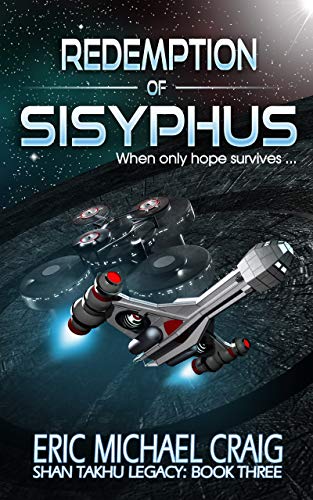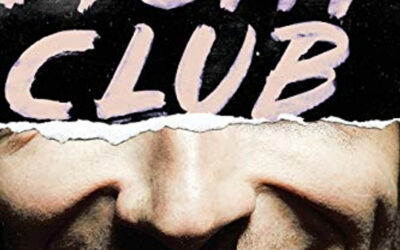Redemption of Sisyphus is the third book of the Shan Takhu Legacy, a hard science fiction series by Eric Michael Craig. My previous reviews of Legacy of Pandora (book one) and Fulcrum of Odysseus (book two) dove into Craig’s writing style and storytelling skills. But now that the series has reached its epic finale, I think it’s time to speak solely as a fan.
But first, a brief setup. We return to the Jakob Waltz, the ice harvester vessel at the center of a mounting conflict over the Tacra Un discovery. Odysseus is in full control of opposition forces through its Derek Tomlinson meat puppet and has begun to employ its strategy to “protect” humanity (the quotes in this case being a very deliberate choice). Unfortunately, that’s about all I can say about the plot without revealing some major spoilers. However, that should be enough of a foundation to ground my thoughts on the story.
When I finished this book, the first thing that popped into my mind was Thanos. Yes, the mad Titan himself. I remember that odd feeling after watching Avengers: Infinity War where I knew that Thanos was the “bad” guy, but I found myself sympathizing with his plight. He wasn’t a mustache-twirling evil doer. He was a sympathetic character, despite the swaths of heroes trying to stop him. This is the exact emotional resonance that Redemption of Sisyphus brings to the table. There are so many layers of character motivations to unpack and your empathy gets tugged in strange directions along the way.
Specifically, let’s talk about AI. (Or AA in this case, i.e. Artificial Awareness). All too often in science-fiction, AI is presented as an all-powerful assistant. This is also true in the Shan Takhu Legacy, but Craig takes a much deeper approach, giving the systems full character arcs of their own. Much like Asimov’s robots, you find yourself investing emotional currency into something that’s essentially computer code. The scenes with Dutch in particular carry the same weighted gut punches as with any flesh-and-blood protagonist.
Speaking of tension, I must point out that Craig has a certain talent for twisting your stomach into knots. I would love to speak more on this, but my spoiler-free hands are tied. Let’s just say that the race to unlock the mystery in order to employ the mystery while also protecting the mystery kept me in a perpetual state of nausea. (In a good way.)
In the end, the Shan Takhu Legacy coalesces in a very satisfying and jaw-dropping conclusion. I can think of no better way to cap off this book review than with a quote from Arthur C. Clarke: “Any sufficiently advanced technology is indistinguishable from magic.” And if you’ve read the book, I imagine you just smiled and nodded.


